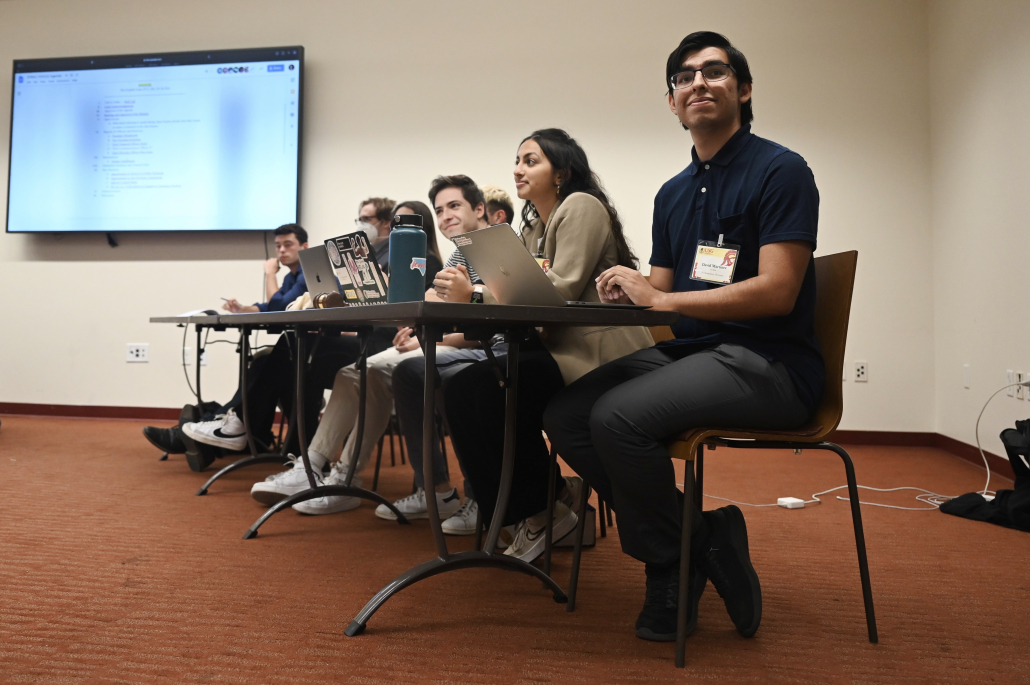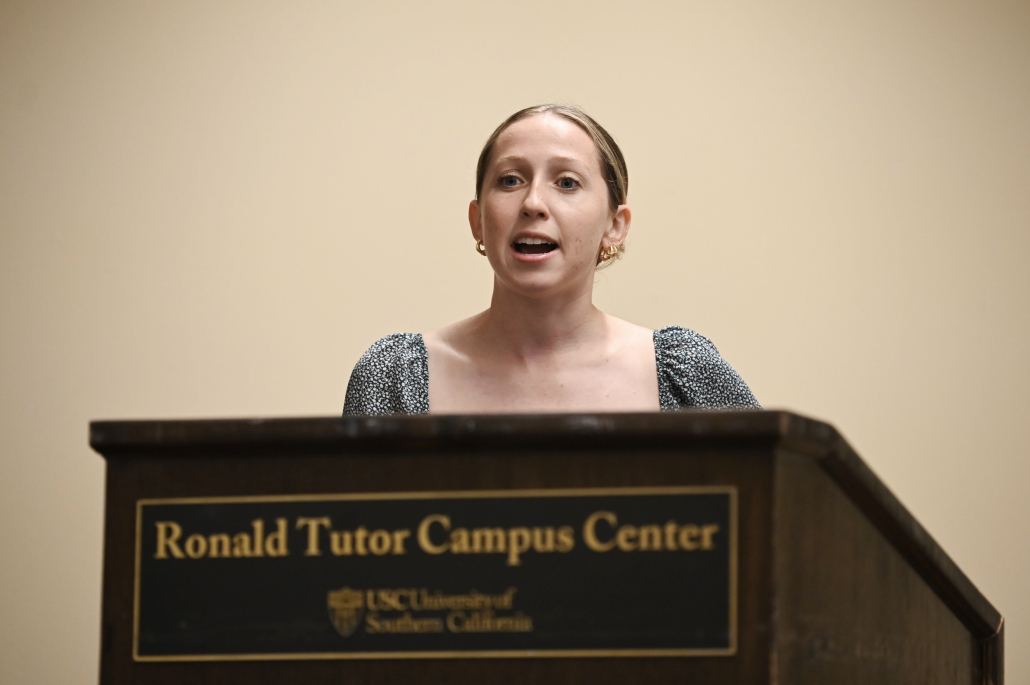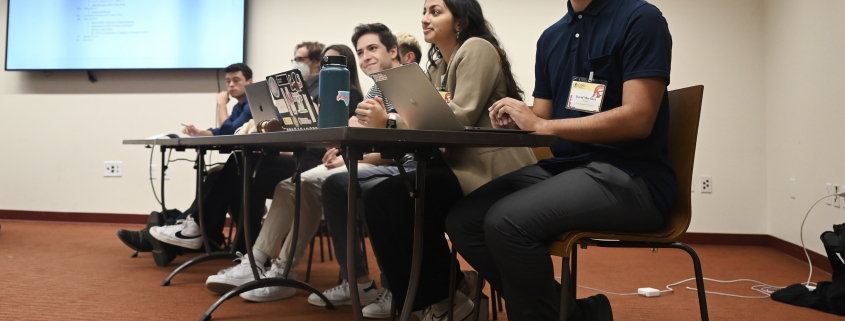USG calls for action on war in Armenia

The Undergraduate Student Government introduced a senate resolution in support of Armenian students at Tuesday’s senate meeting. On Tuesday, Sept. 13, Azerbaijan launched an unprovoked and unjustified invasion on sovereign, internationally recognized territory within the Republic of Armenia, resulting in 7,600 civilians being displaced from their homes and 207 Armenian servicemen and civilians killed.
USG stands in solidarity with the Armenian student community and called for the Office of the Provost and President Carol Folt to release a statement to all deans and professors speaking on the state of affairs of Armenia, advocating for professors to provide support and accommodations.
“We have students on campus this past week [who] have tried to balance school and work, and this incident is very bad for their mental health,” said Eduard Ghazaryan, philanthropy chair of the Armenian Students Association. “We’re trying to get recognition [from the University] for students after a week of silence on this matter.”
Prior to this, president Hannah Woodworth presented status updates on her projects; the USC-Los Angeles Airport shuttle reservation requests have been submitted and are set for use for fall break. USG is currently finalizing the reservation portal. The number of shuttles will account for the responses on the reservation portal.
USG is also in the process of conducting qualitative interviews to determine how to best connect student organizations with its resources, meeting with eight out of twenty-five student leaders so far. They are also working to establish a new crisis response guide for what to do in the case of campus-wide emergencies.
Executive councils will begin meeting in October. The councils — Social Impact Council, Fraternity and Sorority Life Council, Athletics and Recreation Life Council, Religious and Spiritual Life Council, Residential and First-Year council and ROTC and Veterans Council — bring student leaders together to discuss issues in their communities. A seventh council, the Academic Council, including representatives from each of the schools, will be established at a time “coming soon.”
Amid rising heat waves, Woodworth has been in discussion with President Carol Folt about residential housing facilities that lack air conditioning systems.

“For first-year students who are in residential housing and do not have access to air conditioning,” Woodworth said. “You’re not even allowed to bring your own personal air conditioner into your room. The issues are just going to escalate to be worse and worse with the current infrastructure on campus… we’re brainstorming ways that for the next few years we can better support students during these heat waves.”
Vice president Nivea Krishnan shared her personal leadership style, describing her guiding philosophy as transparency, equity and accuracy.
“I want to make sure [my leadership style] is known because I think it’s very easy when you’re in high-level decision-making to lose that sort of personal connection,” Krishnan said. “I want to be transparent and make sure all students know where I stand, prioritize organizational access for underrepresented groups and create a culture of objective information sharing.”
Krishnan also presented updates about her projects, including prospective workshops with the Gould School of Law for students to learn about their rights as students. Currently, the project pitch has been drafted, and USG will be meeting with representatives from Gould on Thursday. Student Basic Needs is also hoping to open a new location for Trojan Pantry this semester in King’s Hall.
Funding director Jake Stemmons presented the department’s goals to increase accessibility to funding by providing guidelines and office hours to answer any questions, as well as ensuring efficient turnover for funding applications and transparency in the funding process.
The department held its first funding workshop last Wednesday. The workshop created a more personal space for registered student organizations and their members to ask questions regarding their funding.
“We try to take a very holistic approach as long as [RSOs] follow the funding guidelines,” Stemmons said. “ We don’t want to insert our own personal opinions or knowledge on this decision; if an RSO wants to run an event that follows the guidelines, it’s not really our place to say no to that.”
Chief diversity officer Zaid Diaz-Arias shared that the advocacy department is preparing for Sex Week which will be Oct. 17 to Oct. 23, a week dedicated to sex exploration and promoting healthy sexuality. USG RSVP liaisons Alexia Sambrano and Alyssa Alegre are available as points of contact for RSOs to help facilitate RSVP workshops within the organization.
Senator Sanjana Sambhwani shared her goals of trying to bridge the gap between USG and the student body, including having post-senate-meeting dinners, tabling on Trousdale Parkway and meeting with RSOs.
Her projects for the semester include establishing a 24-hour/extended hours dining option, having a dedicated space on campus for commuter students and preparing for national transfer student week to provide transfer students an opportunity to get resources and meet other students.
The Senate unanimously confirmed the appointment of director of public relations Mustafa Ali Khan, a junior studying business administration, chair of the elections commission Omar Habhab, a senior studying political science, and elections commissioner Ethan Situ, a freshman studying economics, politics and philosophy.
Senator Yoav Gillath asked Habhab about what he saw as the problem of the election process and what changes he hopes to make during the next election cycle.
“The main issue I saw was transparency in how to access voting,” Habhab said. “There are a lot of students who do not know how to access voting and do not know how to vote … one of my main goals is increasing voter engagement and voter turnout.”

